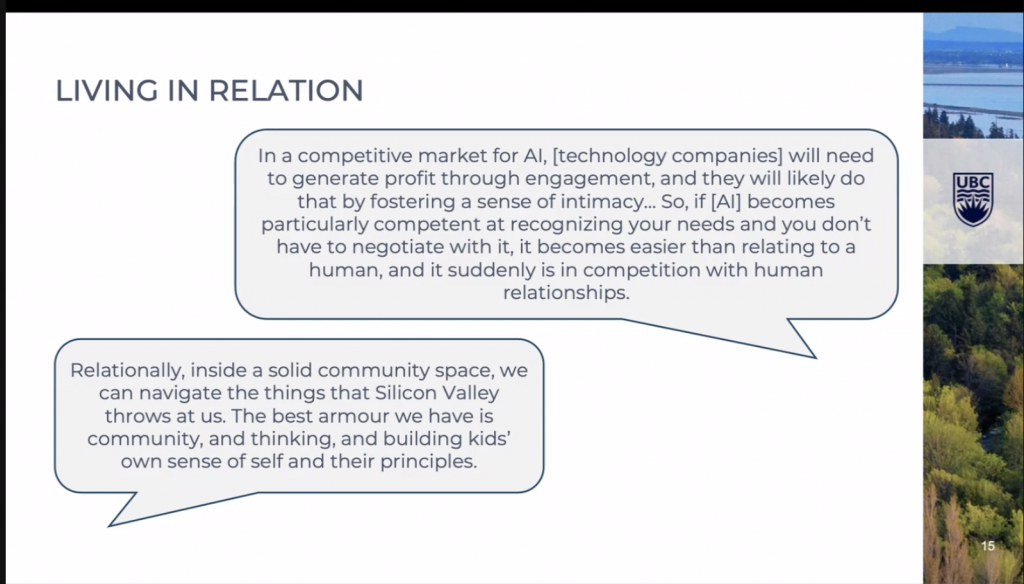Summary of SyMETRI Meeting: February 12th, 2024 by Qiaochu Xu
Presenter/Guest Speaker: Rachel Moylan from the Department of Curriculum and Pedagogy, Faculty of Education, UBC
Date: February 29th, 2024
Host: Dr. Cynthia Nicol
In SyMETRI meeting on February 29th, 2024, PhD student Rachel Moylan shared her insightful study conducted in British Columbia, Canada, shortly after the public release of ChatGPT.
Rachel’s work was titled “Artificial Intelligence in Education: Learning from Teachers’ Perspectives.” This study aimed to understand teachers’ experiences navigating the complex landscape of AI in education, teachers’ experiences of their relationships to AI and other digital technologies, and the ways in which teachers’ experiences concerning AI in education are sociotechnically co-constituted. Though it is promoted by some in the educational technology industry as a neutral tool (e.g., Cohen, 2023), ChatGPT’s perceived capacities for ideation, analysis, and written composition raise questions concerning human capabilities and the future of humanity.
Here are some slides from her presentation:

 During the session, SyMETRI participants actively engaged in discussions about the challenges and ethical concerns related to using AI in educational settings. They delved into specific ways educators could thoughtfully and effectively incorporate ChatGPT in subjects such as math, science, and English for non-native speakers. These conversations highlighted the groups’ need to understand both the technical functionalities of AI tools like ChatGPT and their wider impact on creating fair and productive learning spaces.
During the session, SyMETRI participants actively engaged in discussions about the challenges and ethical concerns related to using AI in educational settings. They delved into specific ways educators could thoughtfully and effectively incorporate ChatGPT in subjects such as math, science, and English for non-native speakers. These conversations highlighted the groups’ need to understand both the technical functionalities of AI tools like ChatGPT and their wider impact on creating fair and productive learning spaces.
Bio
Rachel Moylan is a PhD student in the Department of Curriculum & Pedagogy in the Faculty of Education at UBC. Her PhD research is focused on understanding power relations within complex sociotechnical ensembles and understanding what it is like to be a human within such ensembles. She is especially interested in understanding the human-algorithm relationship in the context of teacher education and is developing a postdigital ethnographic methodology that includes iterative artistic interventions intended to provoke new ways of thinking and becoming in relation to algorithmic systems.
